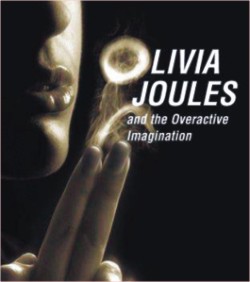
|
Home |
Issues | The Daily Star
Home
|
|
|
Flash of lightning
At around 9am, Meera got ready to go to the local Baishakhi fair. With a red and white sari, dark kohl rimmed eyes and hair flowing like the Ganges, she looked striking. Her father had taken a day off to take Meera and Neetu to the fair. As they walked side by side, Meera's fathers face lit up with proudness, not only because his daughter was looking beautiful, but also because he knew her daughter was now a strong woman, educated and confident. He felt proud of his daughter's acheivements, staying at school while others dropped out, earning a GPA 5 at both HSC and SSC. She had become what he dreamt to be, but after all, parent's dreams are lived through their children. As they entered the fair, a cacophony of sound greeted them. At one corner, Bauls played folk music, telling tales of distant lands and kings. The rest was full of stalls selling almost everything imaginable, from clay figures to mouth watering pithas. When Meera looked up, she saw bright coloured paper flags hung from thing stings throughout the entire ground. A group of people approached them and offered to paint their faces. She looked at her father, waiting for a sign of approval, and for the first time in her life, he retorted, " Amio korbo!" She was ecstatic! In less than a minute, all of their faces were painted with deep purples and bright yellows, and Neetu had gone far enough to have her hands painted as well. As they continued walking, her father noticed a photo booth. Going through his pocket, he realised he had just enough for one photo. They all went into the booth, where they stood against a background of a poster printed with a field of tulips. A smile, a flash and the moment was frozen forever. In an hour they got their picture, which Meera's father promised to attatch in a photo frame on top of their television. After roaming around for sometime, they approached a chorki, a Bengali version of a ferris wheel, but only this one was operated by hand. They were giving free rides to all. Meera, Neetu and her father climbed abord, and they started moving. Oh what fun it was! The wind rushed through her hair and, rather than feeling ticklish and queezy, she felt liberated. After four rounds, the ride ended, and they all stumbled out, dizzy from the intense movement. The day was almost picture perfect, one of the most memorable days of Meera's life. All of a sudden,the sun gave way to the dark clouds which rolled in like the angry waves of the sea. Her father looked up, and remembered. "My cattles are grazing on the field! You stay with Neetu while I herd them in." With that he was gone. After another fifteen minutes of roaming in the fair, the sky had become dark grey, almost black, and the wind had started howling like a lost soul. Cradling Neetu in her arms, Meera started to walk fast. Their house was not far from the fair,and if she kept walking at this rate, she would reach her house safely. The thunder started rolling in and flashes of lighting lit up the sky like the camera had lit up the room. She blinked heavily as dust entered her eyes, making it water and her kohl drippy. Just as she reached her house, tiny drops of rain started falling from the sky. She looked through the window onto the open field, where her father was still pulling the stubborn cows to safety. All of a sudden there was a flash. A bright and powerful bolt of lighting made its way through the cracks of the clouds and onto the ground. Before she could react, the lightning had chosen its medium of touching the ground. The next thing she knew, her father was lying on the ground. She rushed toward him, his frail body showing no signs of movement. Now her screams echoed through the grounds, stonger than the thunder, stronger than the waves of clouds which continued to roll in. Her neighbours started coming one by one, and they rushed him to the hospital, where he was pronounced dead. Meera's life seemed to cave in. Flashbacks of the day started coming into her. Her father by her side, so proud, the ferris wheel and the photograph. Then she remembered the photo. She reached towards his shirt pocket, the one on the left, and found their picture. He had kept it close to his heart, where no one else could take it away from. She looked back at his face, the remains of the the colour still painted on his cheeks, a small smile on his face. He was in an eternal slumber. As the heavens broke out in a flood of tears that fell on the tin roof of the hospital, Meera stood up and walked towards the balcony. She had lost what meant most to her. Atleast she could make his father proud. That was when she realised what she got new in her life. It was the memories of her father, vivid By Sumaiya T Ahmed Every other time  WE make the plans in all of ten minutes. By the time the sun starts its descent down a pearly blue sky I am on my way, hair freshly shampooed, a bounce in my step. I flag down a rickshaw and give directions. Despite the heat of the day I am cheerful, tapping my foot to the beat of an imaginary tune. WE make the plans in all of ten minutes. By the time the sun starts its descent down a pearly blue sky I am on my way, hair freshly shampooed, a bounce in my step. I flag down a rickshaw and give directions. Despite the heat of the day I am cheerful, tapping my foot to the beat of an imaginary tune.
The café is almost deserted, a few stragglers left behind from the lunchtime crowd. I see him sitting by the counter, long legs crossed casually at the ankles, a faded satchel at his feet. He sees me and smiles, and I simper like a school girl. 'Pull up a chair!' he yells brightly, and beckons at a hovering waiter. He orders for both of us, chocolate milkshakes in tall frosted glasses. Despite the fact that we are long past the days of childhood chocolate obsession, the milkshake is our one concession. We pull up our feet and I loosen my still damp hair from its sloppy ponytail, and within moments we leave the white noise of Dhaka traffic behind. He tells me about his job-hunting endeavors, about how the fifteen-year-old girls he tutors every other day are obsessed with Twilight. 'I swear,' he mutters, 'if I see another Team Edward T-shirt I am going to throw a brick through a window.' We spend a happy ten minutes vilifying the cult classic, coming up with alternate endings that have the protagonists leaping off a mountain to a fiery death. 'They're vampires,' I warn. 'They don't die without a fight.' He snorts and retorts, 'one hour of “Mora Daag: The Deadline” and they'll be bolting to their graves.' We polish off the milkshakes and order a second round. The topics bounce off the walls. We make all sorts of plans, for movies and upcoming concerts. We debate hotly the merits of death metal versus alternative rock, a debate that ends in a stalemate. He promises to lend me a mix of his favorite death metal songs, and I acquiesce to listen to them. 'If there's any loud and screechy music,' I warn, 'I'm going to make you pay my share of the bill for the rest of eternity.' 'Now, why on earth would you think that death metal has loud and screechy music?' he quips, and ducks out of a second swat. The electricity, true to Dhaka summer, fails while we are still in the café. The cantankerous floor fan by our table whirs to life. He turns away to adjust the dials. It is at that moment that my cell phone starts to beep. I snatch it out of my purse and flip it open. In the gathering darkness of the day, I see a text message waiting in my inbox. Where are you now?' it says, and I can almost hear the suspicion. I look up, and he's staring at me with an amused, slightly curious, look in his eyes. 'Is anything the matter?' he asks casually. 'No,' I tell him, returning the cell phone to my purse. 'Just a text message.' 'From?' I hesitate. For a second, I wonder what my boyfriend would think of this rendezvous. And then I shake the cobwebs from my head and say, 'No one important.' By HU Book Review Olivia Joules and the Overactive Imagination  After the ditzy disaster that was Clueless, Helen Fielding's Bridget Jones' Diary was a quirky and refreshing take on Austen's timeless Pride and Prejudice. In Bridget we found a wonderfully flawed, yet inspirationally strong character dealing with the kind of issues and insecurities that most urban women would be familiar with. Through her, Fielding firmly established herself as a romance writer worth taking seriously. After the ditzy disaster that was Clueless, Helen Fielding's Bridget Jones' Diary was a quirky and refreshing take on Austen's timeless Pride and Prejudice. In Bridget we found a wonderfully flawed, yet inspirationally strong character dealing with the kind of issues and insecurities that most urban women would be familiar with. Through her, Fielding firmly established herself as a romance writer worth taking seriously.
Which is why Fielding's by-line was enough to make Olivia Joules and the Overactive Imagination seem a promising prospect. This time around, the leading lady, Olivia Joules née Rachel Pixley, is a beauty journalist freelancing for Elan magazine and the Sunday Times. Orphaned at fourteen by a tragic auto accident that wiped out her entire family before her eyes, the pretty young woman is pitied, but not taken seriously by her bosses and friends because of what they believe is her overactive imagination. Sent to Miami to cover a face cream launch, she encounters Pierre Ferramo, a handsome, enigmatic playboy, and is instantly convinced that a man so impossibly broody and attractive has to have something up his sleeve. She is sure that Ferramo is really Osama Bin Laden in disguise, but of course no one will believe her. An explosion in a floating apartment project only serves to fuel her suspicions, and when she discovers that her room has been bugged, she is determined to get to the bottom of the matter. Armed with her razor-sharp wit, a hatpin, and her personal Rules for Survival, the beauty journalist-turned-spy is ready to take on the world of terrorists. And so begins an adventure that takes her from the glitter of LA to the sandy beaches of the Honduras to the deserts of Sudan in what the blurb called a 'Bond-style romp'. While the premises may seem like something out of Legally Blonde, the action is actually surprisingly decent. Plot-wise, it reads like a fluffy version of something Christopher Brookmyre would write, which means it's suspenseful and unpredictable enough to keep the reader engaged. Olivia can be a little full of herself and get annoying, but then that's what makes her real. Her worldly views on life, love and relationships will have you chuckling throughout. Overall, although perhaps not as fun as Bridget Jones, there are worse ways to spend a few hours, so don't forget to give this one a try. By Sabrina F Ahmad |
|
| home
| Issues | The Daily Star Home © 2009 The Daily Star | |